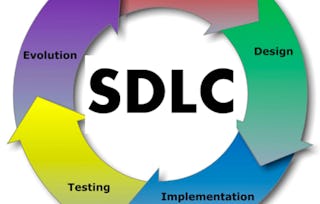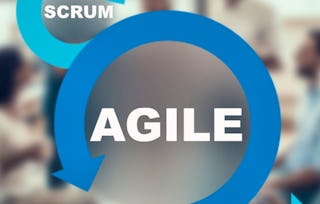Agile embraces change which means that team should be able to effectively make changes to the system as team learns about users and market. To be good at effectively making changes to the system, teams need to have engineering rigor and excellence else embracing change becomes very painful and expensive.

Engineering Practices for Building Quality Software

Engineering Practices for Building Quality Software
This course is part of Software Development Lifecycle Specialization

Instructor: Kevin Wendt
49,086 already enrolled
Included with
462 reviews
What you'll learn
You will learn how to quantiatively measure design quality attributes.
You will establish feasible and testable scenarios for evaluating quality attributes in software architecture.
You will develop skills to ensure quality in developing code beyond correct functionality alone.
You will understand quality approaches to post-development stages of the lifecycle.
Skills you'll gain
- Quality Assurance
- Application Deployment
- Continuous Deployment
- Continuous Delivery
- Software Testing
- Maintainability
- Application Security
- Security Requirements Analysis
- Development Testing
- Program Development
- Software Architecture
- Code Review
- Object Oriented Design
- Software Design Patterns
- Threat Modeling
- Development Environment
- Software Quality Assurance
- Software Quality (SQA/SQC)
- Software Design
- Software Engineering
- Skills section collapsed. Showing 9 of 20 skills.
Details to know

Add to your LinkedIn profile
See how employees at top companies are mastering in-demand skills

Build your subject-matter expertise
- Learn new concepts from industry experts
- Gain a foundational understanding of a subject or tool
- Develop job-relevant skills with hands-on projects
- Earn a shareable career certificate

There are 5 modules in this course
In this module, you will be introduced to the concept of quality as it relates to software.
What's included
1 video1 reading
In this module, you will learn about a variety of quality metrics including how to calculate them. A discussion of design patterns follows, allowing you to gain a deeper understanding of the quality they provide and exposure to several important patterns.
What's included
7 videos11 readings1 assignment2 discussion prompts
In this module, you will create Scenarios in order to document and verify quality attributes relevant to software architecture, including usability, performance, and more. Then, you will examine one specific quality attribute and its implications: security.
What's included
7 videos1 reading1 peer review
In this module, you will explore a variety of quality aspects of the implementation stage of the lifecycle. You will also evaluate coding style guides and static analysis tools. Finally, you will analyze self-documentation in open-source code and identify the capabilities of version control and automated build tools.
What's included
7 videos8 readings1 assignment3 peer reviews2 discussion prompts
In this module, learners will discover quality in the final lifecycle stages: testing and deployment. Learners will first be instructed on the importance of test planning, understand what it means to evaluate tests and identify the benefits of test-first process. Then, a variety of resources will give learners understanding into continuous pipeline tools, allowing the learner to evaluate their potential benefits (and drawbacks) for their own projects.
What's included
5 videos15 readings1 assignment
Earn a career certificate
Add this credential to your LinkedIn profile, resume, or CV. Share it on social media and in your performance review.
Instructor

Offered by
Explore more from Software Development
 Status: Free Trial
Status: Free TrialBoard Infinity
 Status: Free Trial
Status: Free TrialUniversity of Minnesota
 Status: Free Trial
Status: Free Trial Status: Free Trial
Status: Free Trial
Why people choose Coursera for their career

Felipe M.

Jennifer J.

Larry W.

Chaitanya A.
Learner reviews
- 5 stars
74.67%
- 4 stars
14.28%
- 3 stars
4.32%
- 2 stars
2.81%
- 1 star
3.89%
Showing 3 of 462
Reviewed on Oct 27, 2020
Some of the topics are well explained but lacks visual support for a deep understanding of some concepts.
Reviewed on Dec 30, 2024
Really well structured and comprehensive. Lecturers presented well, were engaging and knowledgeable. Assignments were also a lot of fun. Some of the course could be updated/modernized wrt technology.
Reviewed on Apr 24, 2024
Once you already practical experience this course is enhancement proving and validating your skills.

Open new doors with Coursera Plus
Unlimited access to 10,000+ world-class courses, hands-on projects, and job-ready certificate programs - all included in your subscription
Advance your career with an online degree
Earn a degree from world-class universities - 100% online
Join over 3,400 global companies that choose Coursera for Business
Upskill your employees to excel in the digital economy
Frequently asked questions
To access the course materials, assignments and to earn a Certificate, you will need to purchase the Certificate experience when you enroll in a course. You can try a Free Trial instead, or apply for Financial Aid. The course may offer 'Full Course, No Certificate' instead. This option lets you see all course materials, submit required assessments, and get a final grade. This also means that you will not be able to purchase a Certificate experience.
When you enroll in the course, you get access to all of the courses in the Specialization, and you earn a certificate when you complete the work. Your electronic Certificate will be added to your Accomplishments page - from there, you can print your Certificate or add it to your LinkedIn profile.
Yes. In select learning programs, you can apply for financial aid or a scholarship if you can’t afford the enrollment fee. If fin aid or scholarship is available for your learning program selection, you’ll find a link to apply on the description page.
More questions
Financial aid available,
¹ Some assignments in this course are AI-graded. For these assignments, your data will be used in accordance with Coursera's Privacy Notice.

